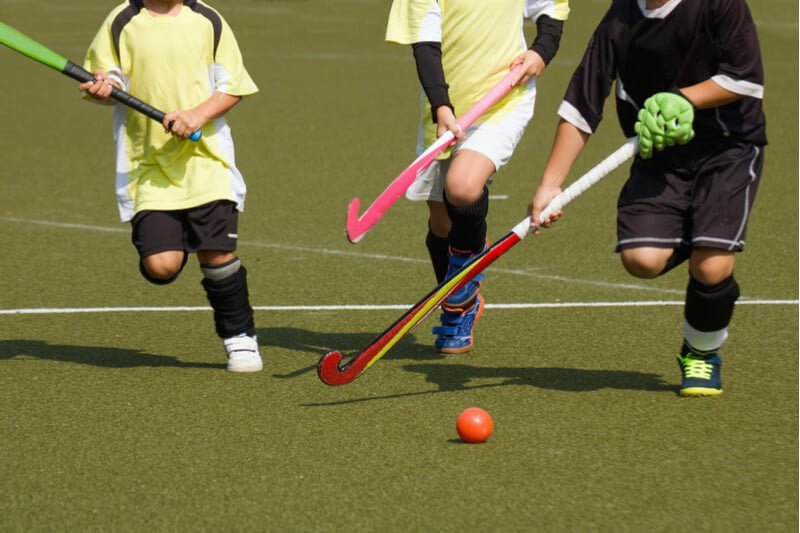Sports have long been celebrated for their ability to bring people together, promote physical fitness, and offer entertainment. However, the impact of sports goes beyond just physical development—it plays a significant role in shaping a person’s character and teaching them important life skills. Among these valuable skills are teamwork and leadership, two essential qualities that transcend the playing field and are crucial in personal and professional settings.
Through the challenges, triumphs, and camaraderie experienced in sports, athletes learn how to work effectively with others, navigate complex situations, and lead by example. This article explores how sports cultivate teamwork and leadership abilities, providing athletes with life skills that benefit them both on and off the field.
The Role of Teamwork in Sports
Understanding Team Dynamics
Team sports require collaboration and the ability to work as part of a group to achieve a common goal. Whether it’s football, basketball, soccer, or volleyball, athletes must learn how to function effectively in a team environment, where individual success is often tied to the collective performance. Teamwork in sports teaches athletes how to communicate, respect others’ roles, and contribute to a shared objective, all of which are vital life skills.
- Collaboration and Communication: Team members must communicate clearly and often under pressure. Whether it’s passing a ball in soccer, making a play call in football, or coordinating strategies in basketball, athletes must constantly interact with teammates. Sports encourage the development of effective communication, whether it’s verbal or non-verbal, to ensure everyone is on the same page.
- Trust and Dependability: Trust is at the core of teamwork. In team sports, players must rely on each other to fulfill specific roles and responsibilities. For example, in basketball, each player has a unique position, and the team must work together to create opportunities for scoring. Learning to depend on others while fulfilling one’s own role fosters a sense of mutual respect and trust, both essential components of successful teamwork in the workplace and other areas of life.
- Conflict Resolution: In any team, there will be disagreements and conflicts. Whether it’s a difference of opinion on strategies or a personal dispute, athletes learn how to navigate these challenges constructively. Sports provide a controlled environment where players can practice resolving issues without the pressure of real-world consequences. This teaches athletes the importance of compromise, active listening, and problem-solving in resolving conflicts.
The Impact of Team Sports on Social Skills
Participation in team sports also promotes social development. Athletes interact with people from diverse backgrounds and forge friendships that often extend beyond the playing field. Sports encourage collaboration and empathy, both of which are critical for building healthy, productive relationships.
- Developing Empathy: In team sports, players learn to put themselves in the shoes of their teammates. If a teammate is struggling, it’s the responsibility of the team to offer support, both emotionally and physically. This fosters empathy, the ability to understand and share the feelings of others, a quality that enhances personal relationships and promotes a positive, supportive work environment.
- Celebrating Success Together: One of the most profound aspects of teamwork is the joy of achieving a goal as a collective group. Whether it’s winning a game or executing a successful play, the shared experience of success creates a strong bond between team members. This sense of accomplishment helps athletes understand the value of working together toward a common goal and reinforces the importance of collective effort over individual achievement.
Leadership Skills in Sports
Leadership by Example
Sports offer multiple opportunities for individuals to step into leadership roles, whether formally as captains or informally as role models. Leadership in sports isn’t just about directing others; it’s about leading by example and motivating teammates to perform at their best.
- Inspiring Others: Effective leaders in sports inspire their teammates through their actions. They lead with integrity, work ethic, and perseverance, demonstrating what it takes to achieve success. A player who consistently gives their best effort, stays positive in adversity, and supports others builds trust and earns the respect of their teammates. This type of leadership is rooted in personal discipline, and athletes who embrace these values set a positive example for others to follow.
- Leading in Adversity: Sports are full of ups and downs, and the best leaders are those who stay calm and composed in tough situations. Whether it’s during a losing streak, after a mistake, or when a teammate is struggling, strong leaders provide guidance and maintain team morale. Their ability to keep the group focused and motivated during challenging times is a critical life skill that transfers well into situations in the workplace or other group settings.
- Building Confidence: Leadership in sports also involves encouraging teammates to believe in themselves and their abilities. A good leader recognizes the strengths of each team member and helps them realize their potential. This can boost the confidence of others and create a more cohesive, motivated team. A confident leader can help others overcome self-doubt and inspire them to take on challenges they may otherwise avoid.
Developing Decision-Making and Responsibility
Leadership in sports requires making quick decisions, often under pressure. Whether it’s choosing a play during a game or making tactical adjustments, athletes in leadership positions must evaluate situations and act swiftly. This fosters strong decision-making skills that are essential in everyday life.
- Making Quick, Informed Decisions: Sports often require leaders to make decisions in real-time with limited information. In football, a quarterback must choose the right pass under pressure; in basketball, a captain must decide whether to take the shot or pass it to a teammate. These types of decisions help athletes develop confidence in their judgment and ability to assess risk and reward, skills that are vital for leadership in business or any other leadership position.
- Taking Responsibility: Leaders in sports are often accountable for the team’s success or failure. Whether they’re captains or not, they understand the importance of owning their mistakes and learning from them. This sense of responsibility for the outcomes of their actions encourages personal growth and maturity. Leadership in sports teaches that success is a collective effort, but individuals must also be responsible for their contribution to the team’s performance.
Empowering Others
Effective sports leaders know that leadership isn’t just about telling others what to do; it’s about empowering teammates to perform to the best of their abilities. Leaders who encourage open communication, foster trust, and support the growth of their teammates help create a more effective, unified team.
- Delegating Tasks and Roles: A successful leader in sports knows when to delegate tasks and responsibilities to others. They understand that everyone has unique strengths and weaknesses and that assigning roles based on those qualities can increase the likelihood of success. A coach or team leader might delegate specific game strategies or leadership roles to different players, encouraging a sense of ownership and pride among all team members.
- Mentoring and Development: Leaders in sports also serve as mentors, helping their teammates grow both on and off the field. By providing guidance, feedback, and support, leaders help others refine their skills and reach their potential. In turn, this creates a culture of continuous improvement, where players are motivated to develop and challenge themselves.
Transferring Sports Skills to Real Life
Teamwork in the Workplace
The teamwork skills learned through sports translate seamlessly into professional environments. Much like sports, the workplace requires collaboration, clear communication, trust, and problem-solving abilities. Employees who have participated in team sports are often better equipped to work in teams, resolve conflicts, and navigate challenges effectively.
- Collaborative Problem Solving: The ability to work with others to find solutions to problems is a skill honed in team sports. Employees who are used to collaborating with diverse teammates are more likely to approach workplace challenges with an open mind and work together to find creative solutions.
- Managing Group Dynamics: Team sports teach individuals how to manage relationships within groups. Whether working with teammates or colleagues, employees who have experienced teamwork in sports understand how to navigate group dynamics and contribute to a positive, productive environment.
Leadership in the Workplace and Community
Leadership skills developed in sports are equally applicable in the workplace and community settings. Just as a sports leader motivates and guides their team, a strong leader in the workplace fosters a positive culture, motivates employees, and helps drive the success of the organization. Leadership roles in sports prepare individuals to make tough decisions, communicate effectively, and provide direction to others.
- Inspiring Others: Whether managing a team, running a project, or leading a department, the ability to inspire and motivate others is crucial for success. Sports leadership teaches individuals how to maintain morale, encourage others, and build a sense of camaraderie that propels everyone toward a common goal.
- Conflict Resolution and Adaptability: Just as sports leaders navigate conflicts between teammates, workplace leaders must also mediate conflicts among employees. The communication and problem-solving skills developed in sports make athletes well-prepared to manage and resolve interpersonal issues that arise in the workplace.
Conclusion
Sports play a significant role in shaping individuals’ lives by teaching essential life skills such as teamwork and leadership. Through the dynamics of team play, athletes learn how to collaborate, communicate, and trust others, while leadership roles in sports help individuals develop qualities like responsibility, decision-making, and the ability to inspire others. These skills go beyond the playing field and have a profound impact on personal, professional, and social lives.
The values of teamwork and leadership instilled through sports not only contribute to success in the sporting world but also prepare individuals for success in their careers and communities. Whether on the field or in the workplace, the lessons learned through sports offer a valuable foundation for becoming effective, compassionate, and resilient individuals.

